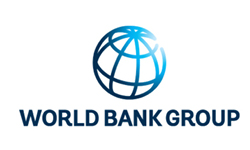Publications
Filter by
356 results found
This second report of the Business Working Group, \"Managing transnational infrastructure programmes in Africa - Challenges and best practices\", identifies the key hurdles that have to be overcome.


This PPP checklist is an extension of the initial framework.



The Framework provides systematic structure for proactively disclosing information pertaining to PPP Projects.



This report addresses the critical question: how can the public and private sectors build successful partnerships?



A G20 report prepared by the Global Infrastructure Hub reviewing the extent to which Multilateral Development Banks (MDBs) create incentives within their organisations to crowd-in private finance to fund public infrastructure.


This book discusses in detail the issues and challenges associated with infrastructure connectivity in Asia.

This policy brief outlines promising ideas to attract instiutional investors to pay for infrastructure they have not convinced pension funds or affluent individuals to invest, especially in emerging economies with untested issuers, The “tax-kicker” bond being proposed here could solve this issue.


This document is the fifth edition of an informational tool and benchmarking index that assesses the capacity of countries in Latin America and the Caribbean to carry out sustainable public-private partnerships (PPPs) in infrastructure.


The study provides a quantitative analysis of the potential gains that would stem from improving efficiency in infrastructure spending in Latin America and the Caribbean.

This document outlines the strategy for Central Asia it envisions rail transport to become a mode of choice for trade: quick, efficient, accessible, and easy to use throughout Central Asia.

This is a new framework for road safety aims to halve the number of fatalities on CAREC road corridors by 2030 (compared to 2010).

Through maps, charts and images, the Atlas combines scientifically reliable data sources to provide a complete view of Africa’s energy needs, resources and opportunities.

The European Investment Bank adopted the EIB Group Gender Strategy on 13th December 2016, building upon an extensive review of and alignment with relevant EU legislation and policy documentation.

The European Investment Bank adopted the EIB Group Gender Strategy on 13th December 2016, building upon an extensive review of and alignment with relevant EU legislation and policy documentation.

The paper discusses the state and the way forward for Africa's infrastructure, with a strong focus on quality infrastructure.

ICA’s flagship report, Infrastructure Financing Trends in Africa, shows trends of financing flows to infrastructure projects in Africa based on collected data from various stakeholders.

The Joint MDB Statement for Crowding-in Private Finance builds on the previously approved Principles for MDBs’ Strategy Crowding-in Private Sector Finance for Growth and Sustainable Development, and the 2016 Joint Declaration of Aspirations on Actions to Support Infrastructure Investment.


This report seeks to identify key capital markets instruments that can help mobilize institutional investors to infrastructure and small and medium enterprises (SME) financing in emerging market economies (EMEs).


The study identifies opportunities for investment to improve sustainable urban transport and mobility in five African cities






